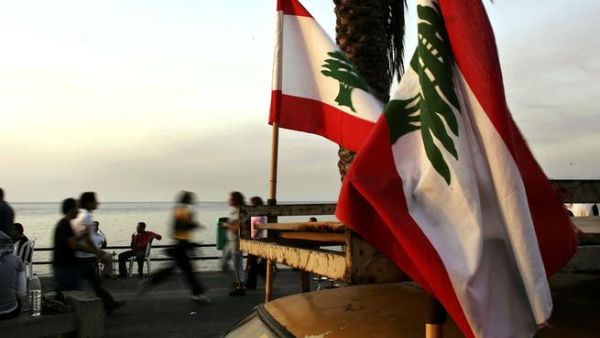The Lebanese national football team made history Wednesday as they qualified for the fourth round of Asian Zone 2014 World Cup qualifying despite losing 4-2 against the UAE in Abu Dhabi.
With Roda Antar missing through suspension and Mahmoud al-Ali picking up an injury early on, Lebanon were starved of their two biggest weapons as they put in a poor performance that was only redeemed by South Korea’s 2-0 defeat of Kuwait that ensured Lebanon’s qualification.
“I have to say I’m very happy and on the other hand I’m very sad,” said Lebanon coach Theo Bucker, “I’m happy for the overall result. No one thought at the start of the campaign that we would [qualify]. We ourselves and no one else should think that we can win every game.”
Bucker did however acknowledge that the defeat was almost a good thing, something that will lower the pressure and expectations placed on his team as well as a wake up call to his players, who he accused of overconfidence.
“This game showed where our weak points are,” said Bucker before adding how the game provided valuable lessons for himself and the team.
In the post-match press conference, Bucker was keen to explain that Antar’s suspension and the climate were also factors.
“One reason was our players were living in a very cold environment for three months. In this heat, it was a burden,” he said.
“If Antar plays, we win,” said Bucker. “He is 50 percent of the game.”
In truth many factors played a part in what was a moribund performance, particularly in the second half.
Few things are more frustrating than a team losing to a side that didn’t play particularly well.
The UAE took the lead after Abbas Hasan fumbled a Basheer Saeed freekick into his own net after 20 minutes, sparking more frenzied talks of whether he was the right pick for the team ahead of Ziad Samad, who had played in Lebanon’s five other performances in qualifying.
“Everybody makes mistakes,” Hasan, clearly tired of the goalkeeping debate, told The Daily Star.
Lebanon hit back immediately through Ali. Abbas Atwi played a big ball to Ali who headed the ball over his markers before splitting the defenders with his pace and firing in the equalizer. Unfortunately Ali collided with the goalkeeper and left the game minutes later in tears.
Lebanon’s principle attacks mirrored the work they had put in on the training field preceding the game: hitting the wings, forcing corners and aiming crosses at the goalkeeper.
On several occasions in the first half Lebanon broke through the defensive line with through balls, only to force a corner rather than a goal.
After Ali went off, those chances dried up; his replacement Akram Moghrabi was simply not quick enough to replicate the runs.
Some casual defending allowed Ali al-Weheibi to put the UAE in from close range, following some poor defending after 37 minutes.On the stroke of halftime, Ahmad Zreik beat two men down the right wing before delivering a deep cross to Hassan Maatouk who took a touch before burying his shot in the far corner to send the teams in level at halftime.
From there it was all downhill. Physical and mental fatigue set in and as word of South Korea’s score against Kuwait filtered to the pitch, Lebanon took their foot off the gas. Haytham Faour was given little service to recycle in midfield, and Bucker’s slightly odd decision to replace the relatively impressive Mohammad Chammas in midfield with defender Ali al-Saadi ensured Lebanon had no foothold in the center of midfield.
The UAE took the lead again after 68 minutes when Ismael Matar rocketed a freekick past Hasan. Unlike the first goal, Hasan could simply do nothing to stop Matar’s bullet.
Saeed put the result beyond doubt when he fired in from outside the penalty area to make the scores 4-2. By that time South Korea had a comfortable 2-0 lead, ensuring the game fizzled out with a whimper.
While celebrations were tempered, Lebanon’s feat is still commendable.








